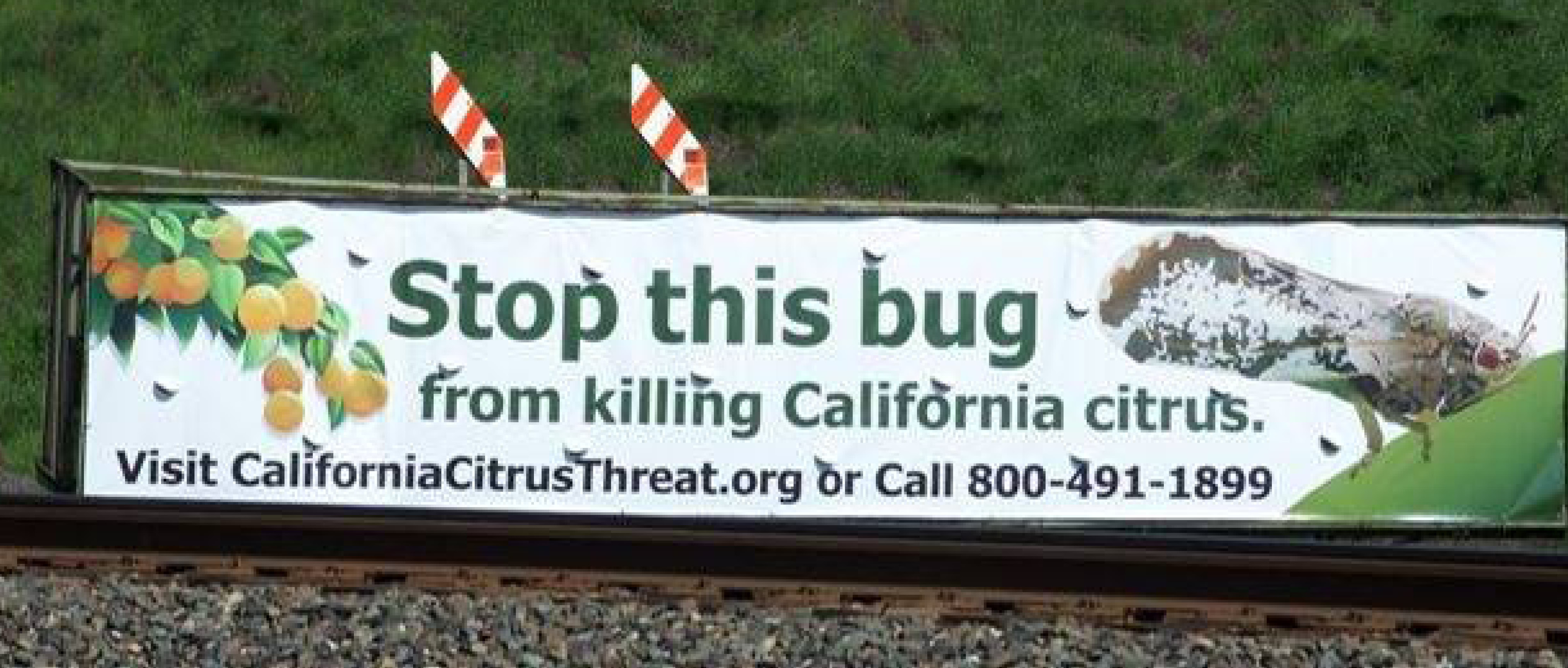UPDATE: ACP Quarantine and Advocacy for Unimpeded Eradication
by Laurie Greene, Editor
CDFA filed a proposed emergency amendment TODAY to expand the ACP quarantine area in response to an “infestation” of the Asian citrus psyllid (ACP), Diaphorina citri, detected in the Farmersville/Visalia area (June 4, 2014), Tulare County. One adult female was found in the area. The proposed 14-mile expansion will include the Visalia area, and the state’s vast ACP quarantine will cover 46,544 sq. miles.
The regulation defines emergency as” a situation that calls for immediate action to avoid serious harm to the public peace, health, safety, or general welfare.” The government code provides,”if the emergency situation clearly poses such an immediate, serious harm that delaying action to allow public comment would be inconsistent with the public interest, an agency is not required to provide notice.”
CDFA Secretary Karen Ross believes that this emergency clearly poses such an immediate, serious harm that delaying action to give the notice would be inconsistent with the public interest. Therefore, Ross proposed that the CDFA Director may adopt reasonably necessary measures such as bypassing the mandatory notice five working days prior to emergency action in order to carry out emergency provisions. Additionally, she requested that the Director be permitted to establish, maintain, and enforce quarantine, eradication, and such other regulations necessary to circumscribe and exterminate or prevent the spread of any pest which is described in the code.
This comes after the California Citrus Industry’s recent backlash against the Executive Committee of the California Citrus Pest and Disease Prevention Committee’s proposed easing of the state’s ACP quarantine and eradication efforts.
And, while CDFA uses the word, “infestation”, Joel Nelsen, President of California Citrus Mutual, commented at the recent United Fresh Convention in Chicago, “There were two more ACP finds found in the northeast part of Tulare County. They were individual finds. Intensive trapping and tapping on the trees, looking for the ACP, hasn’t found any more. So one would argue that we’ve got a population—given the finds in the last year—but we’re still talking single digits.” Nelsen believes this demonstrates the eradication programs are working. “We’re supposed to find the ACP before finds a commercial citrus industry, and we’re doing that.”
Nelsen said the Executive Committee’s recent proposal to significantly modify the program was, “based upon some subjective analysis by a team of scientists who in fact believe that there’s more out there than what we can find.”
“So,” he continued, “we’re obligated to prove a negative; and as long as we do the intensive trapping program, as long as we continue the mandated treatment program, as long as we’re aggressively looking for the Asian citrus psyllid—I don’t see how, and industry doesn’t buy into the fact, you have an endemic population. We’re not finding them in volume; everything is isolated.”
“So, when the industry first became aware of this possible change in the treatment zones of the quarantine mandates, the industry challenged CDFA.”
Now, not only does the ACP program remain intact, but TODAY, CDFA Secretary Ross proposed measures for an unhindered and immediate eradication response by CDFA to ACP discoveries.
Featured Photo Credit: Ted Batkin, Citrus Research Board, “Invasive Pests in California” 1/10.













